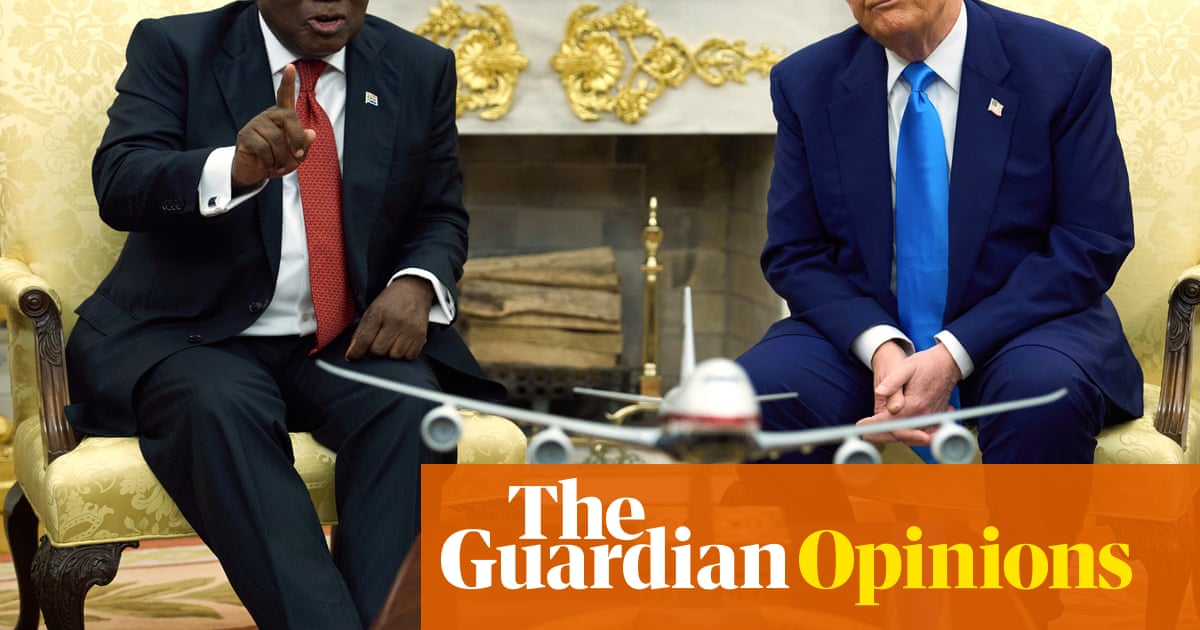The most telling moment of Donald Trump’smeeting with Cyril Ramaphosawas not the cynical screening of footage promoting false claims of “white genocide” in South Africa. It was when a reporter asked the US president what he wanted his counterpart to do about it. Mr Trumpreplied: “I don’t know.”
Leaders enter the Oval Office uneasily, especially since the kicking administered toVolodymyr Zelenskyy. The South African president came armed with gratitude, two golf stars, a billionaire and compliments on the decor – and kept a cool head and a straight face as he was ambushed. Mr Ramaphosa later described it as “robust engagement”. But, in truth, it was a clash of two worlds rather than an interaction.
On one side sat a political heavyweight who calmly asserted the facts; on the other, Mr Trump, espousing wild and inflammatory myths. One side wanted to do bilateral business; the other to pander to the grievances of his domestic base, many of whom doubtless relished the public scolding of an anti-apartheid veteran. No solution was proffered to the imaginary problem.
The ruling African National Congress (ANC) has fallen far short in too many regards. Violent crime is rife. But the administration’s accusations invert reality. White South Africans are 7% of the population but stillown 72% of the land. Experts say that it is poor black people, not wealthier whites, who are disproportionately likely to be victims of violence. Yet as the scholar Nicky Falkof has written, white South Africans have become a “cautionary talefor the White far right [internationally] … central to the landscape and language of White supremacy”. Look where DEI gets you.
Mr Trump aired complaints about the “large-scale killing” of white farmersin his first term, amplifying conspiracy theories thatoriginated in far-right forums. Since then, he has grown closer to the South African-born Elon Musk, who hasaccusedpoliticians there of “promoting white genocide”. The US has nowcut aidto South Africa, accusing the government of “unjust racial discrimination” and attacking its genocide case against Israel at the international court of justice. Washington hasexpelled the South African ambassadorand givenwhite Afrikaners asylumeven as it turns away those fleeing wars.
Mr Trump’s divisive conspiracy theories and failed attempt to humiliate Mr Ramaphosa appear, ironically, to be fostering unity on foreign affairs within South African politics, where the ANC and its (white-led) coalition partner, the Democratic Alliance, have hadvery different histories and priorities. The US still accounts for a tenth of the country’s trade. South Africa must shore up itsauto sectorandagriculture, given its sky-highunemployment rate. But like other governments, Pretoria is salvaging what it can in US relations now, while looking ahead to diversifying its ties. Few expect Washingtonto renewduty-free trade arrangements for African states this autumn.
Warming relations with other western countries is one option. But increasing closeness to China, already South Africa’s top trading partner, looks like an inevitability. Members of the Brics grouping see an opportunityto strengthen ties, though South Africa is discovering that expansiondoes not always mean greater influencefor its dominant players. Mr Trump is looking for kudos, free planes and red meat to throw to his base. Washington’s partners are increasingly looking elsewhere. It’s in US interests to show them respect and nurture longstanding relationships.
Do you have an opinion on the issues raised in this article? If you would like to submit a response of up to 300 words by email to be considered for publication in ourletterssection, pleaseclick here.
